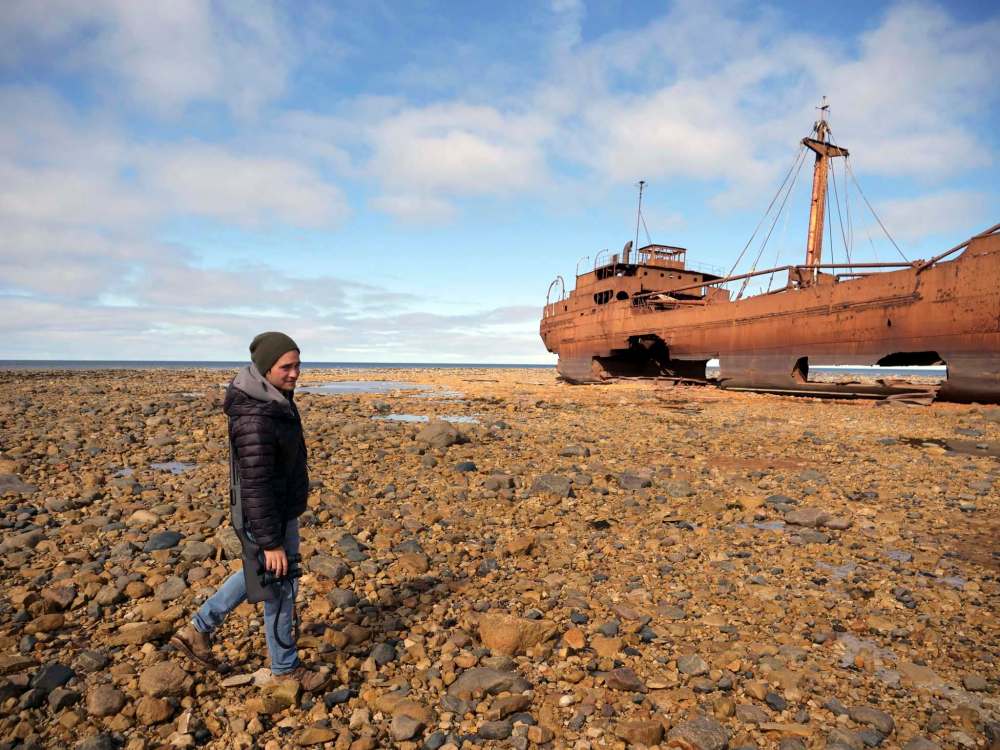Travel restrictions have Churchill’s tourism industry fearing the worst as big-money bear season nears
Read this article for free:
or
Already have an account? Log in here »
To continue reading, please subscribe:
Monthly Digital Subscription
$0 for the first 4 weeks*
- Enjoy unlimited reading on winnipegfreepress.com
- Read the E-Edition, our digital replica newspaper
- Access News Break, our award-winning app
- Play interactive puzzles
*No charge for 4 weeks then price increases to the regular rate of $19.00 plus GST every four weeks. Offer available to new and qualified returning subscribers only. Cancel any time.
Monthly Digital Subscription
$4.75/week*
- Enjoy unlimited reading on winnipegfreepress.com
- Read the E-Edition, our digital replica newspaper
- Access News Break, our award-winning app
- Play interactive puzzles
*Billed as $19 plus GST every four weeks. Cancel any time.
To continue reading, please subscribe:
Add Free Press access to your Brandon Sun subscription for only an additional
$1 for the first 4 weeks*
*Your next subscription payment will increase by $1.00 and you will be charged $16.99 plus GST for four weeks. After four weeks, your payment will increase to $23.99 plus GST every four weeks.
Read unlimited articles for free today:
or
Already have an account? Log in here »
Hey there, time traveller!
This article was published 01/09/2020 (1932 days ago), so information in it may no longer be current.
CHURCHILL — For weeks, the fear has been on the lips of tourist operators and hoteliers in this town: will the North be shut down from the world once again?
And if it is, what will it mean for the meat of the tourism season that begins in October and November, known locally as bear season?
Manitoba’s chief provincial public health officer Dr. Brent Roussin announced Monday that travel restrictions north of the 53rd parallel in the province would be reintroduced beginning Thursday, blocking travellers — even from within the province — heading north beyond Grand Rapids.
With a swell in the number of COVID-19 cases in southern regions of the province over the past few weeks, the travel restrictions that had been implemented earlier this year were reinstated. Churchill, however, did receive an exemption for visitors travelling directly into town by air. But people who may have planned trips by train are now cancelling.

Bill Fong owns the eight-room Iceberg Inn hotel and, in less than 24 hours, he’s had 15 cancellations for September and October, he told the Free Press.
“We can’t control what the government does, we just hope there will be a way for the guests to come see the bears,” Fong said. While he has no plans to get rich running a small hotel in his retirement, he does want to be able to cover his costs.
Churchill’s tourism industry was rocked this year when virtually overnight all international bookings — which make up the bulk of business — dried up.
Fong said it meant that he went from steady bookings that were made months or even a year in advance, to reservations made by Manitobans and western Canadians in some cases only days or hours ahead of their arrivals. It’s changed the fundamental way business is conducted in the community of 900.
“We can’t control what the government does, we just hope there will be a way for the guests to come see the bears.” — Bill Fong, Iceberg Inn owner
A Travel Manitoba study in 2017 valued Churchill’s tourism industry at $41.7 million, with the bulk of business being done during the roughly six weeks when polar bears move from the tundra landscape out onto Hudson Bay as it freezes. The industry generated $19.2 million in annual tax revenues to all three levels of government and created roughly 840 full-time jobs that year, according to the study.
Travel Manitoba has been running ad campaigns all summer trying to encourage Canadians to visit Churchill. The agency declined to comment on the likely impact of the new restrictions until receiving further clarification from the province.
Alex de Vries-Magnifico is a tour guide and owner of Discover Churchill, which principally offers photography tours. Contrary to what he was expecting, de Vries-Magnifico said he had one of the best summers he’s had since opening his business.
He attributed that to an influx of Canadian tourists looking for à la carte tours, instead of purchasing packages with bigger outfitters. But most of those people who book with him are also looking to save some money and they take the train, he said. With the Churchill exemption applying only to direct travel, that business will likely dry up.
“I’m getting tons of people asking me about what the travel restrictions mean and until we see exactly what it entails on Sept. 3, we’re not sure,” he said. “It’s a big question mark. And then even if Churchill is exempt, is that something I personally agree with? I don’t know yet.”
He’s considering cancelling his tours regardless.
“I’m trying to think big picture,” he said. “I’m just not sure if I should run tours this season.”
The economic importance of bear season undoubtedly played a role in the decision to exempt Churchill from the public health order. Dwight Allen owns the Polar Inn hotel in Churchill and said a tourist-free fall would be a “mighty blow” for the community.
“(Tourism operators) that can weather the storm, are going to weather it. The ones that are newcomers and have heavy burdens and finance loads, they’re not going to do well,” Allen said.
Both Allen and Fong acknowledge that COVID-19 has made this year unlike any other.
“It is what it is,” said Fong, who has owned his business for a year-and-a-half but said he says he feels like he’s seen it all already.
Allen said he understands the fear in some northern communities — especially First Nations — that cases will spread in what has otherwise been a safe area. But it’s also hard not to think about what the loss of tourism will mean longer term for the health of the town and its people.
“I want to protect my community. And deep down that’s what I personally want to do,” Allen said. “But it’s a very hard and tough decision to make.”
sarah.lawrynuik@freepress.mb.ca
Twitter: @SarahLawrynuik






